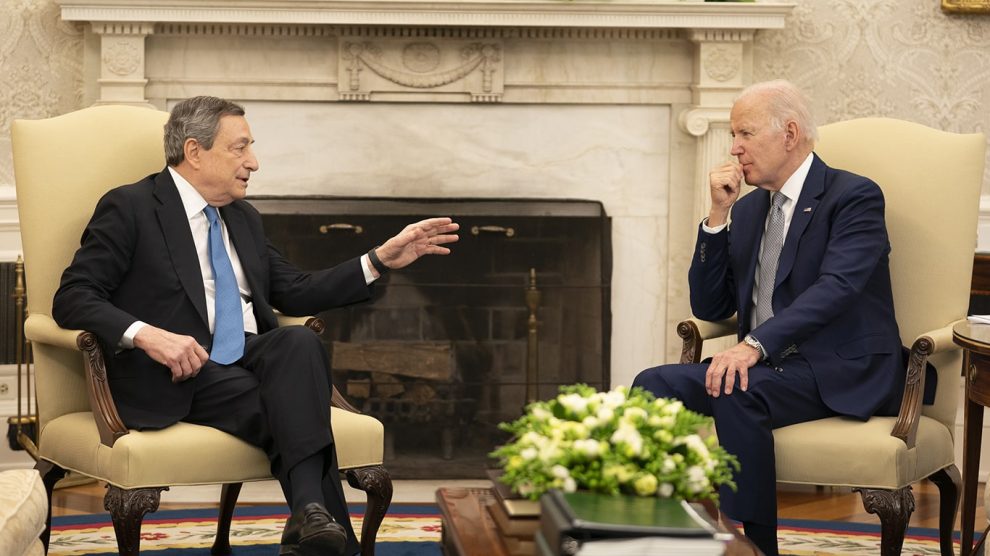Libya entered the chat. During their meeting at the White House, Prime Minister Mario Draghi and President Joe Biden touched upon the Ukrainian crisis, its impacts on Europe and its vicinity, energy and suppliers. And that brought them to this exchange:
Mr Draghi: “Libya can be a huge supplier of gas and oil, not just for Italy but for all of Europe.”
Mr Biden: “What would you do?”
Mr Draghi: “We must work together to stabilise the country.”
That’s easier said than done, given that the war-torn country is locked in a political crisis that makes energy and industrial development rather tricky. Recently, the Italian ambassador to Libya, Giuseppe Buccino, and UN Special Envoy Stephanie Williams had a similar conversation.
- Ms Williams stressed the need to “support a viable constitutional and electoral path to enable elections to be held as soon as possible,” while Mr Buccino highlighted the need to coordinate all efforts on the ground to support the Libyan-led process – while avoiding an escalation of violence.
The expert’s take, part 1. Arturo Varvelli – Senior Policy Fellow and director of the Rome office of the European Council on Foreign Relations – told Decode39 that Libya faces “a political impasse that no one seems to know how to unlock.”
- The countries involved are waiting for June, which is when the mandate of Mr Dbeibah’s government is due to expire, “to see if the situation can move on autonomously or if more involvement from the international community is needed.”
- But those countries now have less leverage, as the Libyan crisis is mostly an internal matter nowadays. And political infighting between Mr Dbeibah and Mr Bashaga, both of whom claim the country’s leadership, makes compromises harder by the day.
- Also, the latter is tied to General Haftar, which Russia still supports.
The expert’s take, part 2. Dario Cristiani – Fellow of the Institute for International Affairs (IAI) and the German Marshall Fund (GMF) – noted that the US, European countries, and NATO’s primary focus is Ukraine. Still, PM Draghi chose to raise issues related to Libya and the so-called southern flank.
- “It’s inevitable: Italy is greatly exposed to the problems stemming from that area, for geographical and historical reasons.”
- Mr Cristiani also told Decode39 that even if Washington’s attention towards the region has diminished, its presence remains significant.
- “Here in DC, there is a clear perception that, in a sort of transatlantic burden sharing, the southern flank should be primarily a domain for the intervention of European countries. These should work to contain Russia (as well as China) as both countries see the Med as a crucial arena and space for the (re)-emerging global multipolar order.”
Still, Italy needs the US. Mr Varvelli believes that PM Draghi leveraged Russia’s presence in the wider Mediterranean and the urgency to diversify away from Russian gas to issue “a pre-emptive call for more political support for Italy within Mediterranean and energy issues.”
- Preserving and aiding the development of nations of the southern flank remains vitally important for Europe and the West, and this is true both for the security and the energy dimension.
- Since Libyan stability is arguably the most pressing issue, and since Washington’s influence can make a difference, Mr Biden should reconsider the US’ interest in that dossier. That, in essence, was Mr Draghi’s underlying message.





